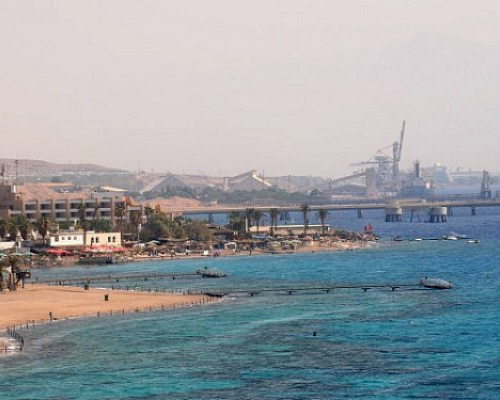Shibh Aljazeera Net | shipping | Israel
The Hebrew business newspaper The Marker has reported substantial losses for Israel’s chemical giant, ICL, due to a maritime blockade by the Yemeni government based in Sanaa, which has halted Israeli shipping routes. The blockade, which closed the port of Eilat, has had a significant impact on ICL’s potash sales, as Eilat served as a primary export hub.
According to a report published Tuesday, ICL’s operating profits declined in the third quarter of this year, largely due to a $13 million surge in shipping costs compared to the third quarter of 2023. The report outlined that the blockade forced ICL to reroute its potash shipments to East Asia through a much longer path around Africa, doubling transportation costs and substantially reducing revenue.
The report noted that the company’s revenues fell by $96 million in the third quarter of 2024. Moreover, transferring exports to Ashdod port has delayed the shipment of 120,000 tons of potash to Brazil and the United States, pending capacity expansions at Ashdod, which currently struggles to handle large shipments.
These delays have cost ICL approximately $70 million in lost sales, with potash division profits down 53% and revenues down 26% due to reduced export volumes.
In a November 2023 report, The Marker warned that ICL, owned by businessman Idan Ofer, could be among the most affected companies if the Red Sea blockade persists, as the company heavily depends on Eilat for exporting potash to East Asia, particularly to markets like China and India.
The earlier report suggested that Sanaa’s control over the Bab al-Mandab Strait could compel ICL to use Ashdod port instead. This change would increase shipping costs, extend export timelines, and create significant challenges for ICL in the Indian market—a traditionally lucrative destination due to its proximity and low shipping costs.
In January, The Marker noted that the blockade had driven ICL’s stock to its lowest level in three years, with a 15% decline since the start of the conflict. Additional reports indicate that Eilat’s shutdown, caused by the blockade, has dealt a severe blow to Israel’s potash exports and the car import industry, both of which heavily relied on this port.
